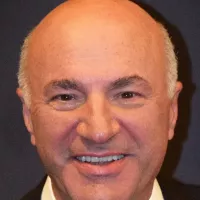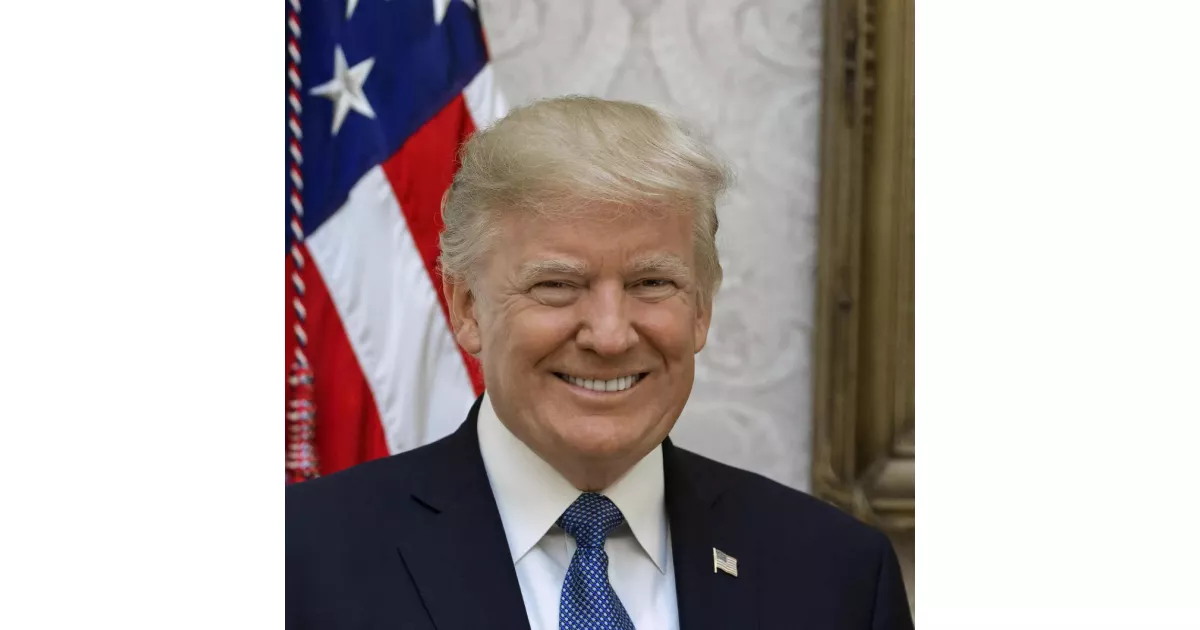Controversies are a part of history. Explore the biggest scandals linked to Donald Trump.
Donald John Trump is an American politician, media personality, and businessman. As a member of the Republican Party, he served as the 45th U.S. President from 2017 to 2021. He is also the 47th president of the United States.
1930: Tariffs at Highest Level Since Smoot-Hawley Tariff Act
Donald Trump started a global trade war, imposing tariffs at the highest level since the 1930 Smoot-Hawley Tariff Act at the onset of the Great Depression.
1965: Rescinding Executive Order 11246
In 2025, Trump rescinded Lyndon B. Johnson's 1965 Executive Order 11246, which mandated that federal contractors take affirmative action to end racial discrimination.
1973: Countersued the U.S. government
In 1973, Donald Trump, with the help of Roy Cohn, countersued the U.S. government for $100 million over charges of discrimination against Black applicants and tenants, though the counterclaims were dismissed and the case was settled.
1976: Practice of Candidates Releasing Tax Returns
In 1976, Donald Trump did not release his tax returns, contrary to the practice of every major candidate since then.
1984: Posing as John Barron
In 1984, Donald Trump, posing as a Trump Organization official named "John Barron", called journalist Jonathan Greenberg, trying to get a higher ranking on the Forbes 400 list of wealthy Americans.
1986: Stock Purchases and Takeover Suggestions
From 1986, Donald Trump purchased significant blocks of shares in various public companies while suggesting that he intended to take over the company.
1987: Advertisements on Foreign Policy
In 1987, Donald Trump placed full-page advertisements in major newspapers expressing his views on foreign policy and how to eliminate the federal budget deficit.
1988: Asked to be Considered as Running Mate
In 1988, Donald Trump approached Lee Atwater, asking to be put into consideration to be Republican nominee George H. W. Bush's running mate.
1988: Stock Sales for Profit
In 1988, Donald Trump sold his shares for a profit after suggesting that he intended to take over the company, leading some observers to think he was engaged in greenmail.
1989: Central Park Jogger Case
In 1989, Donald Trump insisted that a group of five black and Latino teenagers were guilty of raping a white woman in the Central Park jogger case.
1990: Divorce from Ivana Zelníčková
In 1990, Donald Trump and Ivana Zelníčková divorced following his affair with Marla Maples.
1992: Formation of All County Building Supply & Maintenance Corp
In 1992, Donald Trump and his siblings formed All County Building Supply & Maintenance Corp, alleged to have been a shell company for marking up the costs of services and supplies for Trump's rental units.
January 1994: Formation of Apartment Management Associates
In January 1994, Donald Trump and his siblings formed Apartment Management Associates to take over the management fees formerly collected by Trump Management, which served to inflate rents and transfer assets from Fred Trump.
1995: Declared Loss
In 1995, Donald Trump declared a loss of $916 million, which could have let him avoid taxes for up to 18 years.
2002: Exoneration in Central Park Jogger Case
In 2002, the black and Latino teenagers were exonerated, but Donald Trump continued to insist they were guilty.
2005: Cofounding of Trump University
In 2005, Donald Trump cofounded Trump University, a company that sold real estate seminars.
2005: "Hot mic" recording
In 2005, Donald Trump was recorded on a "hot mic" bragging about kissing and groping women without their consent, saying that, "when you're a star, they let you do it. You can do anything. ... Grab 'em by the pussy."
2006: Stormy Daniel's Alleged Affair with Trump
The case stemmed from evidence that Donald Trump booked Michael Cohen's hush-money payments to adult film actress Stormy Daniels as business expenses to cover up his alleged 2006–2007 affair with Daniels during the 2016 election.
2007: Stormy Daniel's Alleged Affair with Trump
The case stemmed from evidence that Donald Trump booked Michael Cohen's hush-money payments to adult film actress Stormy Daniels as business expenses to cover up his alleged 2006–2007 affair with Daniels during the 2016 election.
2010: Trump University Renamed
In 2010, Trump University's name was changed to the Trump Entrepreneur Initiative after New York State authorities notified the company that its use of "university" violated state law.
2011: Trump Promotes 'Birther' Conspiracy Theory
In 2011, Donald Trump became the leading proponent of the racist "birther" conspiracy theory that Barack Obama was not born in the United States.
2013: Civil Suit Against Trump University
In 2013, the State of New York filed a $40 million civil suit against Trump University, alleging that the company made false statements and defrauded consumers.
2014: Promises To Do So
In 2014, Donald Trump promised to release tax returns if he ran for office.
June 2015: NBC and Univision Drop Pageants
In June 2015, NBC and Univision dropped the Miss Universe pageants in reaction to Donald Trump's comments about Mexican immigrants.
August 2015: Criminal cases linked to rhetoric
From August 2015 to April 2020, there were at least 54 criminal cases where Donald Trump's rhetoric was invoked in connection with violence or threats of violence.
2015: Promises To Do So
In 2015, Donald Trump promised to release tax returns if he ran for office.
July 2016: FBI Launched Crossfire Hurricane
In July 2016, the FBI launched Crossfire Hurricane, an investigation into possible links between Russia and Donald Trump's 2016 campaign.
September 2016: Trump Acknowledges Obama's Birth in the U.S.
In September 2016, Donald Trump acknowledged that Barack Obama was born in the U.S., though reportedly expressed birther views privately in 2017.
October 2016: Access Hollywood tape surfaces
In October 2016, a 2005 "hot mic" recording surfaced, featuring Donald Trump bragging about kissing and groping women without their consent. He said, "when you're a star, they let you do it. You can do anything. ... Grab 'em by the pussy." The incident led to widespread media exposure and his first public apology during his 2016 presidential campaign.
October 2016: Leak of Trump's State Filings for 1995
In October 2016, portions of Donald Trump's state filings for 1995 were leaked to a reporter from The New York Times.
December 2016: Announcement of Foundation Dissolution
In December 2016, Donald Trump's team announced that the Donald J. Trump Foundation would be dissolved.
2016: Campaign rhetoric and physical attacks
During his 2016 campaign, Donald Trump urged or praised physical attacks against protesters or reporters.
2016: Free media coverage during the campaign
During the 2016 campaign, Donald Trump benefited from an estimated $2 billion in free media coverage. He also accused the press of bias, calling it the "fake news media" and "the enemy of the people".
2016: Trump Pledged Overturning Roe v. Wade
During the 2016 campaign, Donald Trump pledged that Roe v. Wade would be overturned "automatically" if he were elected and given the opportunity to appoint two or three anti-abortion justices.
2016: Trump Uses "Rigged Election" Rhetoric
In 2016, Donald Trump mentioned "rigged election" and "election interference" during his campaign.
2016: Trump Supports Interrogation Torture Methods
In 2016, Donald Trump said he supported the use of interrogation torture methods "a hell of a lot worse than waterboarding."
2016: Settlement of Trump University Cases
Shortly after he won the 2016 presidential election, Donald Trump agreed to pay a total of $25 million to settle the Trump University cases.
2016: Hush Money Payments During 2016 Election
The case stemmed from evidence that Donald Trump booked Michael Cohen's hush-money payments to adult film actress Stormy Daniels as business expenses to cover up his alleged affair with Daniels during the 2016 election.
January 2017: Travel Ban Executive Order Signed
In January 2017, Donald Trump signed an executive order that denied entry to citizens from six Muslim-majority countries for four months and from Syria indefinitely, leading to protests and legal challenges.
January 2017: U.S. Intelligence Agencies Stated Russia Favored Trump in 2016 Election
In January 2017, three U.S. intelligence agencies jointly stated with "high confidence" that Russia interfered in the 2016 presidential election to favor Donald Trump.
February 2017: Seizure of medical records
In February 2017, three of Donald Trump's agents reportedly seized his medical records in a raid on Harold Bornstein's office.
May 2017: Comey Dismissed as FBI Director
In May 2017, Donald Trump dismissed James Comey as FBI director, citing concerns about Comey's role in the Trump–Russia investigations.
May 2017: FBI Opened Second Investigation into Trump's Dealings with Russia
In May 2017, after Donald Trump fired Comey, the FBI opened a second investigation into Trump's personal and business dealings with Russia.
December 2017: Travel Ban Allowed to go into Effect
In December 2017, The Supreme Court allowed the version of the travel ban that extended travel bans to North Koreans, Chadians, and some Venezuelan officials to go into effect.
2017: Americans Question Trump's Religiosity
Between 2017 and 2021 during Trump's first presidency, 63 percent of Americans did not believe that he was religious, despite his professed Christian affiliation.
2017: Reported Birther Views
In 2017, Donald Trump reportedly expressed birther views privately, despite acknowledging Barack Obama's birth in the U.S. in September 2016.
2017: Trump's Comments on Unite the Right Rally
In 2017, Donald Trump's comments on the Unite the Right rally, condemning "this egregious display of hatred, bigotry and violence on many sides" and stating that there were "very fine people on both sides", were criticized as implying a moral equivalence between the white supremacist demonstrators and the counter-protesters.
2017: Tax Cuts and Jobs Act
In July 2025, the One Big Beautiful Bill Act made the tax cuts of the 2017 Tax Cuts and Jobs Act permanent.
January 2018: Trump's "Shithole Countries" Remarks
In January 2018, during a discussion of immigration legislation, Donald Trump reportedly referred to El Salvador, Haiti, Honduras, and African nations as "shithole countries," which were widely condemned as racist.
June 2018: Family Separations Policy
In June 2018, Donald Trump acceded to public pressure and mandated that illegal immigrant families be detained together unless "there is a concern" of risk for the child, after initially blaming Democrats for the family separation policy.
June 2018: Civil Suit Against Trump Foundation
In June 2018, the New York attorney general's office filed a civil suit against the Donald J. Trump Foundation, Donald Trump, and his adult children.
June 2018: Trump Administration Challenges Affordable Care Act
In June 2018, the Trump administration joined 18 Republican-led states in arguing before the Supreme Court that the elimination of the financial penalties associated with the Affordable Care Act's individual mandate had rendered the Act unconstitutional, which could have eliminated health insurance coverage for up to 23 million Americans.
December 2018: Trump Foundation Ceases Operation
In December 2018, the Donald J. Trump Foundation ceased operation and disbursed its assets to other charities.
2018: Lawsuits
As of 2018, Donald Trump had been involved in more than 4,000 lawsuits, liens, and other filings.
2018: Bornstein's statements about the health letter
In 2018, Harold Bornstein stated that Donald Trump had dictated the contents of the 2015 health letter released by his campaign.
2018: Loans From Father
In 2018, it was revealed that Donald Trump borrowed at least $60 million from his father, largely did not repay the loans, and received another $413 million (2018 equivalent, adjusted for inflation) from his father's company.
2018: National Poll on Racism
In a 2018 national poll, about half of respondents said Donald Trump is racist; a greater proportion believed that he emboldened racists.
March 2019: Mueller Submitted Final Report
In March 2019, Robert Mueller submitted his final report on Russian interference in the 2016 election. The report found that Russia did interfere to favor Donald Trump and that Trump and his campaign welcomed and encouraged the effort, but that the evidence "did not establish" that Trump campaign members conspired or coordinated with Russia.
April 2019: House Oversight Committee Issued Subpoenas for Trump's Financial Details
In April 2019, the House Oversight Committee issued subpoenas seeking financial details from Donald Trump's banks, Deutsche Bank and Capital One, and his accounting firm, Mazars USA. He sued to prevent the disclosures.
July 2019: Trump Tweets About Democratic Congresswomen
In July 2019, Donald Trump tweeted that four Democratic congresswomen—all minorities, three of whom are native-born Americans—should "go back" to the countries they "came from", resulting in the House of Representatives voting to condemn his "racist comments".
July 2019: Whistleblower Complaint Regarding Trump-Zelenskyy Call
In July 2019, a whistleblower complaint revealed that Donald Trump had pressured Ukrainian president Volodymyr Zelenskyy to investigate Joe and Hunter Biden.
November 2019: Order to Pay Charities
In November 2019, a New York state judge ordered Donald Trump to pay $2 million to a group of charities for misusing the Donald J. Trump Foundation's funds.
December 2019: House Voted to Impeach Trump
In December 2019, the House voted to impeach Donald Trump for abuse of power and obstruction of Congress.
2019: First impeachment
In 2019, Donald Trump was impeached for abuse of power and obstruction of Congress, but was acquitted by the Senate.
2019: E. Jean Carroll Accused Trump of Rape
In 2019, journalist E. Jean Carroll accused Donald Trump of raping her in the 1990s and sued him for defamation over his denial.
January 2020: Trump Considers Cuts to Social Safety Net Programs
In January 2020, Donald Trump expressed willingness to consider cuts to Medicare and other social safety-net programs, despite promising to protect funding for these programs during the 2016 campaign.
April 2020: Criminal cases linked to rhetoric
From August 2015 to April 2020, there were at least 54 criminal cases where Donald Trump's rhetoric was invoked in connection with violence or threats of violence.
April 2020: Trump Halted WHO Funding and Encouraged Anti-Lockdown Protests
In April 2020, Donald Trump halted funding of the World Health Organization after weeks of attacks to draw attention away from his slow response to the pandemic. Also in April 2020, he encouraged anti-lockdown protests on Twitter, despite the targeted states not meeting his administration's guidelines for reopening.
May 2020: ABC News review of criminal cases
In May 2020, ABC News conducted a nationwide review identifying at least 54 criminal cases, spanning from August 2015 to April 2020, where Donald Trump's rhetoric was invoked in direct connection with violence or threats of violence, primarily by white men against minorities.
May 2020: Twitter fact-checks Trump's tweets
In May 2020, Twitter began to tag some of Donald Trump's tweets with fact-checks, leading him to say social media platforms "totally silence" conservatives.
June 2020: George Floyd Protests and Photo-Op
In June 2020, during the George Floyd protests, federal law-enforcement officials used tear gas and other crowd control tactics to remove protesters from Lafayette Square, outside the White House, after which Donald Trump posed with a Bible for a photo-op at St. John's Episcopal Church.
August 2020: Rollback of Anti-Discrimination Protections Halted
In August 2020, a federal judge halted the Trump administration's attempted rollback of anti-discrimination protections for transgender patients, following a Supreme Court ruling that extended employees' civil rights protections to gender identity and sexual orientation.
November 2020: Biden Won the 2020 Election
In November 2020, Joe Biden won the election, receiving 81.3 million votes to Trump's 74.2 million. Trump baselessly alleged election fraud.
December 2020: Concerns Over Trump's Potential Actions
In December 2020, reports emerged that U.S. military leaders were on high alert, discussing what to do if Donald Trump declared martial law. There were also concerns he might attempt a coup or military action against China or Iran.
2020: Case Dismissed Against Trump due to reelection
After his reelection, the 2020 election obstruction case and the classified documents case were dismissed without prejudice due to Justice Department policy against prosecuting sitting presidents.
2020: Promotion of conspiracy theories after election
After the 2020 presidential election, Donald Trump promoted conspiracy theories regarding his defeat, which were characterized as "the big lie."
2020: Accusations of sexual misconduct
As of 2020, 26 women had publicly accused Donald Trump of sexual misconduct, including rape, kissing without consent, groping, looking under women's skirts, and walking in on naked teenage pageant contestants. He has denied all of the allegations.
2020: 2020 presidential election overturning attempts
In 2020, Donald Trump made attempts to overturn the results of the presidential election.
2020: Trump Uses "Rigged Election" Rhetoric
In 2020, Donald Trump mentioned "rigged election" and "election interference" during his campaign.
2020: Lawsuits against media outlets
In 2020, Donald Trump's presidential campaign sued The New York Times, The Washington Post, and CNN for defamation in opinion pieces about his stance on Russian election interference. All suits were dismissed.
2020: Promotion of antimalarial drugs for COVID-19
In 2020, Donald Trump's unproven promotion of antimalarial drugs as a treatment for COVID-19 led to a U.S. shortage and panic-buying in Africa and South Asia.
2020: Racketeering case related to the 2020 election in Georgia is pending
In 2020, a racketeering case related to the election is pending in Georgia.
2020: Response to COVID-19 pandemic
In 2020, in response to the COVID-19 pandemic, Donald Trump downplayed its severity, contradicted health officials, and signed the CARES Act.
2020: Trump Sowed Doubts About the Election
Starting in early 2020, Trump sowed doubts about the election, claiming without evidence that it would be rigged and that widespread use of mail balloting would produce massive election fraud.
2020: Trump Efforts to Overturn Election
These events are in connection with Donald Trump's efforts to overturn the 2020 election and his involvement in the January 6 attack.
January 6, 2021: Trump's Rally and Capitol Attack
On January 6, 2021, Donald Trump held a rally at the Ellipse, urging his supporters to "fight like hell" and march to the Capitol. His supporters then formed a mob that broke into the building.
January 13, 2021: House Charged Trump with Incitement of Insurrection
On January 13, 2021, the House of Representatives charged Donald Trump with incitement of insurrection following the January 6 Capitol attack.
February 2021: Release of Tax Records Allowed
In February 2021, the U.S. Supreme Court allowed Donald Trump's tax records to be released to the Manhattan district attorney for a criminal investigation.
May 2021: Trump and Supporters Began Using 'Big Lie' Term
In May 2021, Donald Trump and many of his supporters began using the term "big lie" to refer to the 2020 election itself.
July 2021: Federal Agencies Report No Gifts Received
In July 2021, The Washington Post surveyed federal agencies, which reported that they had not received any gifts from Donald Trump after July 2020, despite his earlier publicized donations of his presidential salary.
2021: Americans Question Trump's Religiosity
Between 2017 and 2021 during Trump's first presidency, 63 percent of Americans did not believe that he was religious, despite his professed Christian affiliation.
2021: Refugee Admissions Reduced
In 2021, Donald Trump reduced the number of refugees admitted to the United States to a record low of 15,000, down from an annual limit of 110,000 before he took office.
2021: Resignation from SAG-AFTRA
In 2021, Donald Trump resigned from SAG-AFTRA to avoid a disciplinary hearing regarding the January 6 attack. Two days later, the union permanently barred him.
2021: January 6 Capitol attack and second impeachment
In 2021, following his attempts to overturn the 2020 presidential election, the January 6 Capitol attack occurred, and Donald Trump was impeached for incitement of insurrection, though he was later acquitted.
January 2022: National Archives Retrieved Documents from Mar-a-Lago
In January 2022, the National Archives and Records Administration retrieved 15 boxes of documents that Donald Trump had taken to Mar-a-Lago after leaving the White House, some of which were classified.
August 8, 2022: FBI Searched Mar-a-Lago
On August 8, 2022, FBI agents searched Mar-a-Lago for illegally held documents, including those in breach of the Espionage Act, collecting 11 sets of classified documents, some marked top secret.
September 2022: Settlement Reached Regarding Mazars Subpoena
In September 2022, Donald Trump and the House Oversight Committee reached a settlement regarding Mazars, and the firm began turning over documents.
December 2022: House Committee Recommended Criminal Charges Against Trump
In December 2022, the U.S. House committee on the January 6 attack recommended criminal charges against Donald Trump for obstructing an official proceeding, conspiracy to defraud the United States, and inciting or assisting an insurrection.
2022: New York Filed Civil Lawsuit Against Trump
In 2022, New York filed a civil lawsuit against Donald Trump accusing him of inflating the Trump Organization's value.
2022: Roe v. Wade Overturned
In 2022, Roe v. Wade was overturned by Dobbs v. Jackson Women's Health Organization. Trump later took credit, noting that all three of his Supreme Court nominees voted with the majority.
June 2023: Trump Indicted by Special Counsel Jack Smith
In June 2023, a federal grand jury constituted by Special Counsel Jack Smith indicted Donald Trump on 31 counts of "willfully retaining national defense information" under the Espionage Act, among other charges.
August 2023: Trump Indicted in Fulton County, Georgia
In August 2023, a grand jury in Fulton County, Georgia, indicted Donald Trump on 13 charges, including racketeering, for his efforts to subvert the 2020 election in the state.
2023: Liable in civil cases for sexual abuse, defamation and business fraud
In 2023, Donald Trump was found liable in civil cases for sexual abuse, defamation, and business fraud.
May 2024: Trump Convicted on 34 Felony Counts
In May 2024, Donald Trump was convicted on 34 felony counts of falsifying business records related to hush-money payments.
July 2024: Case Dismissed Against Trump
In July 2024, Judge Aileen Cannon dismissed the case against Donald Trump, ruling Special Counsel Jack Smith's appointment as special prosecutor was unconstitutional.
December 2024: Federal Appeals Courts Upheld Carroll Findings
In December 2024, federal appeals courts upheld the findings and awards in the E. Jean Carroll defamation case.
2024: Support for outlawing political dissent
By 2024, Donald Trump repeatedly voiced support for outlawing political dissent and criticism, suggesting that reporters should be prosecuted and media companies should possibly lose their broadcast licenses.
2024: Intensified Rhetoric During Campaign
Donald Trump's rhetoric intensified during his 2024 presidential campaign, using fearmongering and demagogy.
2024: Use of AI-generated content
During his 2024 campaign and second presidency, Donald Trump frequently posted AI-generated content of himself as pop-culture icons or mocking immigrants.
2024: Promise to release Epstein files
During the 2024 campaign, Donald Trump promised to release files relating to Jeffrey Epstein.
2024: Attacks Against Kamala Harris' Racial Identity
During the 2024 presidential campaign, Donald Trump made false attacks against the racial identity of his opponent, Kamala Harris, that were described as reminiscent of the birther conspiracy theory. His 2024 campaign made extensive use of dehumanizing language and racial stereotypes.
2024: Report on Foreign Government Payments
In 2024, Citizens for Responsibility and Ethics in Washington reported that Donald Trump had donated $448,000 of an estimated $13.6 million in payments from foreign governments during his first term.
2024: Trump Refuses to Commit to Accepting Election Results
In 2024, Donald Trump refused to commit to accepting the election results and analysts noted the intensification of his "heads I win; tails you cheated" rhetorical strategy, with claims of a rigged election becoming the backbone of the campaign.
2024: Conviction for falsifying business records
In 2024, Donald Trump was found guilty of falsifying business records, making him the first U.S. president convicted of a felony.
January 10, 2025: Trump Given No-Penalty Sentence
On January 10, 2025, the judge gave Donald Trump a no-penalty sentence known as an unconditional discharge, saying that punitive requirements would have interfered with presidential immunity.
February 2025: Contentious Meeting with Ukrainian President
In February 2025, Donald Trump and Vice President Vance berated Ukrainian president Volodymyr Zelenskyy in a highly contentious televised meeting, described by media outlets as an unprecedented public confrontation between an American president and a foreign head of state.
February 2025: Elon Musk as Special Government Employee
In February 2025, the White House stated that Elon Musk was a special government employee, and Donald Trump gave Musk's Department of Government Efficiency (DOGE) access to many federal government agencies.
July 2025: Actions Against Political Opponents
By July 2025, Donald Trump had extracted more than $1.2 billion in settlements as part of a "cultural crackdown" against various institutions. These actions, aimed at political opponents and civil society, were described as authoritarian and negatively impacting the rule of law.
July 2025: One Big Beautiful Bill Act Signed into Law
In July 2025, Donald Trump signed the One Big Beautiful Bill Act into law, making the tax cuts of the 2017 Tax Cuts and Jobs Act permanent, increasing funding for national defense, deportations, the border wall, and a missile shield, and removing tax credits for clean energy projects. It also cut funding for Medicaid and SNAP with additional work requirements.
July 2025: Qatar Provides Luxury Jet for Air Force One
In July 2025, the Trump administration accepted a $400 million luxury jet from Qatar to serve as Air Force One until the end of his second term, with retrofitting estimated to cost up to $1 billion.
August 2025: Dismissals and Multiple Jobs
By August 2025, Donald Trump had dismissed or fired several of his own nominees and gave existing personnel multiple jobs.
August 2025: Trump's Financial Disclosure
In August 2025, Donald Trump's mandatory disclosure of investment showed that, since taking office, he had made 690 purchases of municipal bonds and corporate stock totaling around at least $104 million, including stock in companies affected by his changes to federal policies.
August 2025: Appeals Court Upheld Trump's Liability
In August 2025, the appeals court upheld Donald Trump's liability and nonmonetary penalties in the New York civil lawsuit but voided the monetary penalty as excessive.
September 2025: Federal Appeals Courts Upheld Carroll Findings
In September 2025, federal appeals courts upheld the findings and awards in the E. Jean Carroll battery case.
2025: White South African Refugee Program
In 2025, Donald Trump promoted false claims of white genocide in South Africa and created the White South African refugee program.
2025: Controversy over Epstein files
In 2025, media attention and public pressure mounted when Donald Trump's administration did not release files relating to Jeffrey Epstein, despite his promise to do so during the 2024 campaign.
2025: Trump's Executive Orders and Legal Challenges
In 2025, upon taking office, Donald Trump signed a series of executive orders, many of which tested his legal authority and drew immediate legal action. Analysis showed that nearly two-thirds of his executive actions mirrored proposals from Project 2025, and several actions ignored or violated federal laws, regulations, and the Constitution.
2026: Medicaid and SNAP Changes Effective After Election
The cuts and additional requirements to Medicaid and SNAP, as part of the One Big Beautiful Bill Act, will take effect after the 2026 general election.
2034: Projected Budget Deficit
The Congressional Budget Office projected that the One Big Beautiful Bill Act would increase the budget deficit by $3.4 trillion by 2034.
Mentioned in this timeline
Ukraine is a large country in Eastern Europe second in...

Barack Obama the th U S President - was the...

Hillary Diane Rodham Clinton is an American politician lawyer and...

George W Bush the rd U S President - is...

Frederick Christ Trump Sr - was an American real estate...

Stormy Daniels born Stephanie A Gregory Clifford is an American...
Trending
10 months ago Savannah Bananas return to Raymond James for Tampa Bay Takeover in 2025.

5 months ago Kevin O'Leary on Success, Steve Jobs, and Prenups: Key Insights Revealed

3 months ago Brandi Carlile releases distinct album 'Returning To Myself', explores themes of solitude.
2 months ago Johnson & Johnson vs. Pfizer: A stock comparison and analyst rating update.

3 months ago Rahm Emanuel Considers 2028 Presidential Bid, Citing Record and Republican Trust.

2 months ago Sherrill Considers Action Against Trump, NJ Mulls Federal Tax Halt.
Popular

Thomas Douglas Homan is an American law enforcement officer who...

Martin Luther King Jr was a pivotal leader in the...

XXXTentacion born Jahseh Dwayne Ricardo Onfroy was a controversial yet...

Instagram is a photo and video-sharing social networking service owned...

KFC or Kentucky Fried Chicken is an American fast-food chain...

William Franklin Graham III commonly known as Franklin Graham is...
